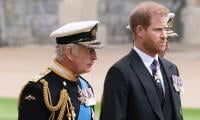ISLAMABAD: French authorities are proceeding against their former prime minister and an ex-defence minister over the submarine deal with Pakistan in the mid-1990s which allegedly involved secret commissions, however, Islamabad still awaits holding a high level inquiry into what is seen as one of the biggest corruption scandals in the country’s defence deals.
Of late BBC reported, “Former French Prime Minister Edouard Balladur and an ex-defence minister are to stand trial over the so-called Karachi affair — a submarine deal with Pakistan in the mid-1990s which allegedly involved secret commissions.”
It added that under that deal, Balladur, now aged 90, allegedly got funding for his failed 1995 bid for the presidency. His then Defence Minister, François Léotard, also faces trial. Both men, the BBC said, categorically deny any wrongdoing.
A former naval chief, when contacted, told The News that although some minor inquiries were held and some mid-level officials and civilians were also held responsible, no high-level probe was conducted to expose those involved in the deal.
In 2010, while talking to The News, a former director general Naval Intelligence (DGNI) of Pakistan Navy had offered himself to both Islamabad and Paris authorities to help probe into the matter to book the corrupt and bring back the looted money to Pakistan.
Talking to The News, the former DGNI, who was tortured, harassed, put under illegal custody and prematurely retired from service for knowing too much about the commission mafia, had said that he was willing to cooperate with the Pakistani as well as French authorities. “I have a lot to share with them about the kickbacks in the Agosta submarine deal,” he had assured. He had also disclosed certain details of Agosta submarine deal and revealed that while the deal had led to the removal of the then-chief of naval staff (CNS) and the framing of a corruption reference against the then prime minister and a politician very close to the PM, those mighty and powerful in the navy, who made millions out of this deal, were never brought to the witness box.
The cover-up in the submarine deal, according to the former DGNI, was meant to save the skin of many in the Pakistan Navy.
To keep his mouth shut, he was charged of getting Rs1.5 million from a naval officer, who was alleged to have got illegal gratification and kickbacks from foreign suppliers of naval vessels, etc., but made an approver against the DGNI. On the contrary, a list of naval officers, who were alleged to have received kickbacks, were never touched. Instead they were promoted as rear admirals.
He had revealed that there did exist a Feb 17, 1995 letter issued by SOFMA (the French company that was involved in Agosta deal) that talked of making payment of US$40,000 to each of four naval officers whose names were mentioned in the same letter. Instead of probing the four officers, each one of them was later elevated as rear admiral while the DGNI was taken to task for alleged corruption of Rs1.5 million.
Interestingly, the DGNI was alleged to have received this money from a naval officer, who was getting money from foreign suppliers of defence deals. As being the DGNI, he had even sought permission of his high command to catch an agent, who was giving bribe money to naval officers, he was not allowed to do so.
Besides the DGNI, the former naval chief later in an interview with The News had also given credence to the French investigative report that talked of almost $49 million (Rs7.64 billion) kickbacks in Agosta-submarine deal allegedly received by a key politician and others including naval officers.
The naval chief had disclosed that the then government had urged the Pakistan Navy to go for the French subs. He, while quoting the then naval chief, had revealed that the then defence minister had clearly indicated to the Pakistan Navy’s high command the government’s preference for the induction of the French submarines.
Despite these clear verbal directions from the defence minister, the naval top command, according to him, had again met and deliberated on the subject and decided to recommend two options to the government namely the British Upholder and the French Agosta. The government later approved the induction of Agosta.
The naval chief, who talked to The News, had said that the navy first formally came to know about the kickbacks in the Agosta deal in 1998 following which it had proceeded against three officials of the ranks of captain and commodores for getting bribe and got them removed from service.
“My hunch is that besides the politicians, some top ranking naval officers even above the rank of commodore might also have received kickbacks as reflected in the recent French media reports, however, they (the top naval officials) remained undetected for want of proof or witnesses,” he was quoted to have said, claiming that even the condemned formal naval chief was not convicted of Agosta kickbacks but for the bribes that he had pocketed in the other defence deals.
Khawar Manika's counsel continued his arguments on Wednesday in a petition filed by Imran Khan and Bushra Bibi
IHC reserved judgment on the petition against registration of cases against former interior minister Sheikh Rashid on...
Saudi woman who was reportedly kidnapped from Islamabad’s residential Sector F-8 in mysterious circumstances, has...
Pakistan Navy warship rescued 8 Iranian fishermen after their boat caught fire in the open sea
SC dismissed appeal against SHC order that turned down application of partner seeking extension of time to furnish...
Executive board of International Monetary Fund will meet on April 29 to discuss the approval of $1.1 billion funding...







